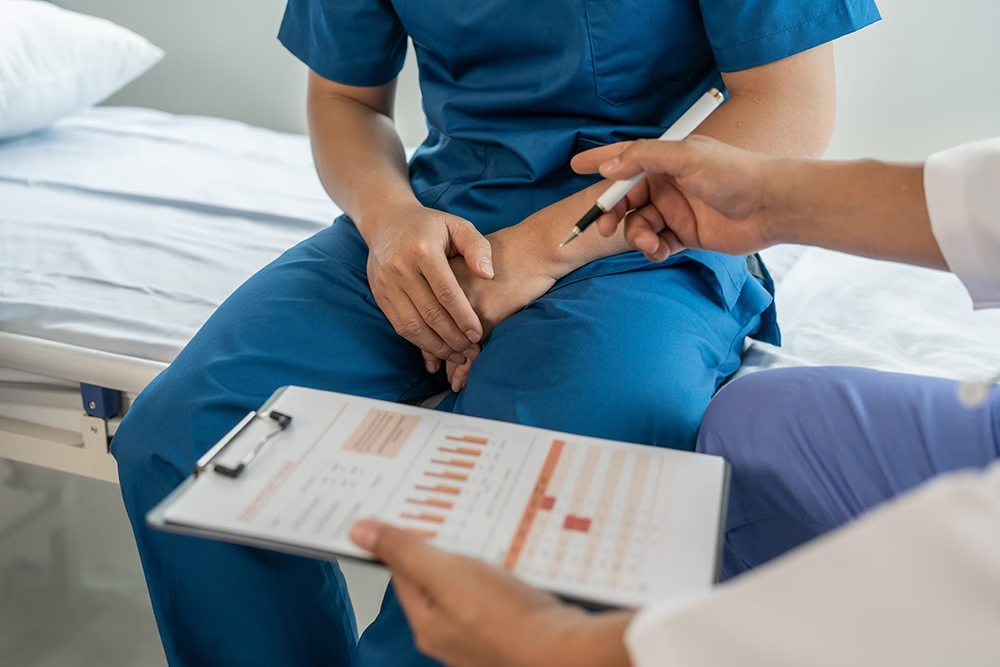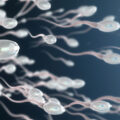Last updated on July 24, 2025
For many men considering a vasectomy, one of the most common questions is: What happens to sperm after a vasectomy? It’s a fair concern, especially given how little most people are taught about the biology behind male sterilisation.
While the vasectomy procedure is a highly effective form of permanent contraception, it doesn’t stop sperm production altogether. Instead, the body handles things in a far more natural and efficient way than many expect. Let’s take a closer look at what actually happens to sperm after a vasectomy — and why the truth might surprise you.
Understanding the Vasectomy Procedure
To understand what happens to sperm after vasectomy, it helps to start with how the procedure works. A vasectomy involves sealing the vas deferens — the small tubes that carry sperm from the testicles to the urethra.
Without access to the vas deferens, sperm can no longer mix with semen or be ejaculated during intercourse. However, this doesn’t affect how sperm is produced. The testicles continue to make sperm just as they did before the procedure. The only difference is that the sperm has nowhere to go.
Where Does the Sperm Go?
Here’s the surprising truth: your body continues producing sperm after a vasectomy, but it no longer forms part of the ejaculate. Much like other cells the body no longer needs, sperm is naturally broken down and reabsorbed.
In a typical sperm pathway, sperm is produced in the testicles and mature in the epididymis before moving through the vas deferens. With an open-ended vasectomy, one end of the vas deferens remains unsealed, allowing sperm to exit the epididymis but not reach the urethra. Instead, the sperm is released into the surrounding tissue near the cut end and gradually broken down by the body’s immune system.
This process of sperm reabsorption is completely safe and happens continuously, even in men who haven’t had a vasectomy. The difference after vasectomy is simply an increase in the volume of sperm being absorbed — something the body manages efficiently without discomfort or health risk.
Does Sperm Build Up After a Vasectomy?
Many men worry that sperm might build up after the procedure and cause discomfort. However, the body is incredibly efficient at regulating production. If sperm isn’t ejaculated, the testicles gradually slow down how much they produce, helping to maintain balance.
There’s no ongoing “sperm build-up” that leads to pressure or swelling. The system adjusts naturally. Any sperm that isn’t needed is broken down and removed through the body’s normal cellular recycling processes.
Impact on Sexual Function and Testicle Health
One of the most reassuring facts about vasectomy is that it doesn’t affect testosterone levels, libido, or sexual performance. Testicle function after vasectomy remains completely intact. The testicles still produce the same hormones and continue to operate as part of your reproductive system — they simply no longer contribute sperm to your ejaculate.
While semen may contain no sperm post-vasectomy, its volume remains largely unchanged. That’s because sperm makes up only a small fraction of the total fluid — most of it comes from the seminal vesicles and prostate gland.

Understanding what happens to sperm after vasectomy helps clear up common myths about fertility and male health.
Is Sperm Ever Present After Vasectomy?
Although the vasectomy procedure prevents new sperm from entering the semen, it doesn’t take effect immediately. There may still be sperm present in the vas deferens for several months after the procedure.
That’s why doctors recommend a follow-up semen analysis 12 weeks later, to confirm that all sperm has cleared. This ensures that the vasectomy is fully effective and that you’re no longer fertile. Until then, it’s important to use alternative contraception to prevent unintended pregnancy.
Common Misconceptions About Sperm and Vasectomy
Let’s clear up a few myths:
- “Sperm will back up and cause harm” – False. Sperm is continuously broken down and reabsorbed by the body.
- “Sperm will rot inside the testicles” – Not true. The body treats unused sperm like any other excess cell — it doesn’t remain or decay.
- “Vasectomy affects masculinity or hormone levels” – Completely incorrect. Testosterone production and sexual function are unaffected.
The truth is that vasectomy and sperm function are more separate than most people think. While sperm is no longer part of ejaculation, your overall reproductive health remains stable.
Final Thoughts
So, what happens to sperm after a vasectomy? In short, it’s absorbed by the body efficiently, naturally and safely. Your testicles continue to work as usual, but the sperm they produce is simply redirected internally rather than externally.
For anyone considering male sterilisation, understanding this process can help clear up confusion and ease concerns. If you’re curious about whether a vasectomy procedure is right for you, it’s always worth speaking to a qualified doctor who can walk you through the details, risks and benefits.
How to book a vasectomy appointment
- Fill out our online booking form
- Call us: 0800 884 408
- Email us: info@thecooperclinic.co.nz
Frequently Asked Questions
Does your body still produce sperm after vasectomy?
Yes, sperm production continues after vasectomy even though it no longer leaves the body. The sperm is safely reabsorbed and has no impact on fertility after the procedure.
Where does sperm go after vasectomy?
Once the vas deferens is sealed, sperm is blocked from entering the semen and remains within the reproductive system. The body gradually breaks it down and reabsorbs it over time.
How does the body get rid of sperm after vasectomy?
Specialised immune cells help to clear out unused sperm through a natural process of absorption. This is similar to how the body disposes of other unneeded cells.
Can sperm build up after vasectomy?
No, sperm does not build up because the body slows production and absorbs any excess. There is no harmful accumulation or pressure caused by unused sperm.
Do testicles still produce sperm after vasectomy?
Yes, the testicles continue to function normally and produce sperm. However, the sperm remains in the system and is broken down internally rather than being ejaculated.







